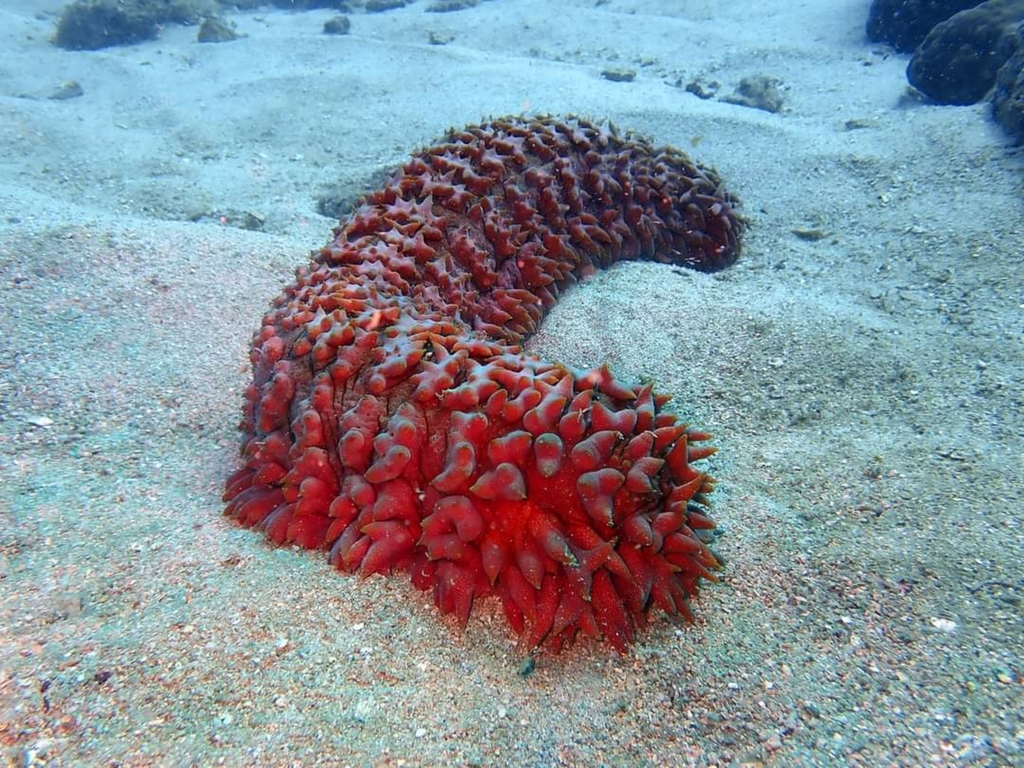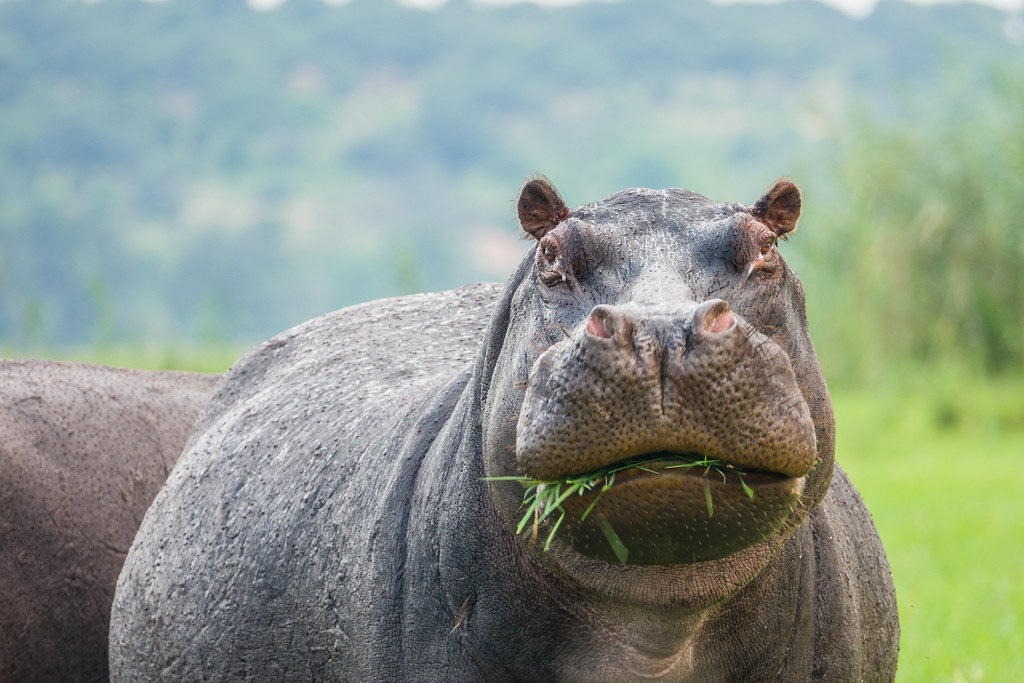Press release CITES CoP19 n°4
Panama
Pineapple sea cucumber (Thelenota ananas), giant sea cucumber (T. anax) and red-lined sea cucumber (T. rubralineata)
The proposal by the European Union, the Seychelles and the United States to list the 3 species of the genus Thelenota in Appendix II was accepted by 97 votes in favour with 16 against and 15 abstentions. The listing will come into force after 18 months. France, which initiated the proposal, stressed the key role of sea cucumbers in ecosystems. In the seabed, sea cucumbers have a role comparable to that of earthworms. China, the largest market, opposed the proposal, while the China Aquatic Products Processing Marketing Alliance touted breeding projects that would solve all the problems. Also voted against: Antigua and Barbuda, Cambodia, Canada, Japan, Lesotho, Maldives, Norway, Papua New Guinea, Philippines, Singapore, Solomon Islands, Suriname, Thailand, Viet Nam and Zimbabwe.
Russia, whose waters suffer from the plundering of other sea cucumber species, voted in favour of the proposal. Ukraine’s credentials have not yet arrived and it is therefore not allowed to vote.
In order to facilitate the work of customs officers, the French Natural History Museum has just published a guide to the identification of the sea cucumber species most commonly encountered in trade. This guide has been translated into English, Spanish and Chinese.
French : https://inpn.mnhn.fr/docs/CITES/Guide-identification-concombres-de-mer-2022-FR.pdf
English :https://inpn.mnhn.fr/docs/CITES/Guide-identification-concombres-de-mer-2022-EN.pdf
Spanish : https://inpn.mnhn.fr/docs/CITES/Guide-identification-concombres-de-mer-2022-ES.pdf
Chinese : https://inpn.mnhn.fr/docs/CITES/Guide-identification-concombres-de-mer-2022-CN.pdf
 Pineapple sea cucumbers thank the Seychelles, the United States and the European Union.
Pineapple sea cucumbers thank the Seychelles, the United States and the European Union.
© Neoswayne
Requiem sharks. Family Carcharhinidae
Grey reef sharks, dusky sharks, smalltail sharks, Ganges sharks, sandbar sharks, Borneo sharks, Pondicherry sharks, smoothtooth blacktip sharks, sharptooth lemon sharks, Caribbean reef sharks, daggernose sharks, night sharks, blacknose sharks, whitecheek sharks, lost sharks, Pacific smalltail sharks, Borneo broadfin sharks and broadfin sharks, the entire family Carcharhinidae, also known as requiem sharks, including the blue shark, were listed on Appendix II after a secret ballot requested by Japan, Mauritania, Iceland and Antigua and Barbuda (88 votes in favour, 29 against and 17 abstentions). The listing will come into force after 12 months. The proposal came from the Syrian Arab Republic, Israel, Bangladesh, Colombia, the Dominican Republic, Ecuador, El Salvador, the European Union, Gabon, the Maldives, Panama, Senegal, Seychelles, Sri Lanka and the United Kingdom. It was the sacred union for the requiem sharks and look-alike species. Fins from at least 35 of them, including sandbar shark fins, are sold in Hong Kong fish markets. Strict enforcement of Appendix II should make it easier to fight against smuggling.
Hammerhead sharks. Family Sphyrnidae
Dried hammerhead fins are highly sought after in Asia and in Asian communities around the world. The main smuggling routes are from South America to Hong Kong, mainland China and the USA, and from Africa to Southeastern Asia. The proposal to list all hammerhead shark species on Appendix II was accepted by consensus. Three have already been listed in Appendix II since 2013 (hammerhead, great hammerhead and smooth hammerhead). As a result of carry-over, the smaller species, namely the bonnethead sharks, the scoophead sharks, the smalleye hammerhead sharks, the scalloped bonnethead sharks, the Carolina hammerhead sharks and the winghead sharks, have entered international trade for their meat, but mainly for their fins.
Guitarfishes. Family Rhinobatidae
Their fins are tending to replace shark fins on international markets. The proposal by Israel, Kenya, Panama and Senegal to list all species in Appendix II was accepted by 101 votes in favour with 14 against and 3 abstentions. Japan, Indonesia and China were strongly against.
Freshwater stingrays Potamotrygon albimaculata, P. henlei, P. jabuti, P. leopoldi, P. marquesi, P. signata and P.wallacei
The Brazilian proposal for inclusion in Appendix II was accepted by consensus.
See “Panama, the great sellout of wild animals and plants“, press release of November 14, 2022.
Zebra pleco (Hypancistrus zebra)
Brazil’s proposal to list the zebra pleco in Appendix I (ban on international trade) was rejected by 62 votes to 52 with 15 abstentions. A 2/3 majority is required. By voting against, the 27 countries of the European Union made themselves responsible for this failure. Even the United States of America, where the aquarium business lobby is considerable, voted in favour. The EU’s alternative proposal to keep the species in Appendix II with a zero export quota was rejected (60 votes in favour, 52 against and 12 abstentions). It is possible and desirable that discussions will be reopened in plenary this week.
See “Panama, the great sellout of wild animals and plants“, press release of November 14, 2022.
Hippopotamus (Hippopotamus amphibius)
 Hippos are furious with the European Union.
Hippos are furious with the European Union.
Photo s9-4pr
The proposal by Benin, Burkina Faso, Central African Republic, Gabon, Guinea, Liberia, Mali, Niger, Senegal and Togo, supported by Uganda, Cameroon and Israel, to keep hippos in Appendix II while setting export quotas at zero was rejected by 56 votes in favour, 56 against and 13 abstentions.
Elephants and hippos are in the same boat. The delegate from Mali reaffirmed: “At a time when national ivory markets are closing, it is known that hippopotamus ivory is now a substitute for elephant ivory. “On the Trail”, the quarterly information and analysis report on endangered animals poaching and smuggling published by Robin des Bois, confirms Mali’s statement in its own way.
The European Union, in agreement with WWF, opposed this proposal despite concessions from the proposing countries. The original version recommended a pure Appendix I. An abstention by the 27 EU countries would have allowed the hippos to jump the obstacle. Supported by Zimbabwe, Eswatini, South Africa, Malawi and Zambia, the EU made a counter-proposal with drawers that would have posed enforcement problems for customs officers and led the hippos into the same dead end as the elephants (zero quota for all of Africa … except for Southern Africa). Fortunately, the European convoluted proposal to split the species was not accepted (58 for, 51 against and 14 abstentions). We will have to come back for the hippos at the next CITES.
Elephants (Loxodonta africana)
Zimbabwe, Botswana, South Africa and Namibia failed to reopen the trade in ivory and hides (83 votes against, 15 in favour and 17 abstentions). See the second part of the Elephants chapter in the press release “Panama, the great sellout of wild animals and plants“. They were supported in particular by the Democratic Republic of Congo, Eswatini (formerly Swaziland), Zambia, Tanzania, Cambodia, Cuba and, more surprisingly and worryingly, by China, which has closed its own domestic market for elephant ivory. Japan, a fervent defender of international trafficking, also supported the proposal of Zimbabwe and the 3 southern African countries.
Burkina Faso, Equatorial Guinea, Mali and Senegal, on the other hand, proposed the coming-back of all African elephant populations in Appendix I. Currently, when elephants have the misfortune to pass through Zimbabwe, Botswana, South Africa or Namibia, they are in Appendix II. “Elephants must be protected from trade. 76 populations are cross-border. Borders determined by humans are meaningless for elephants,” said the delegate from Burkina Faso. “The elephant is the object of much greed by criminal networks and is threatened by the rapid development of poaching, with increasingly sophisticated weapons,” recalled the delegate from the Republic of the Congo.
The European Union and the United States of America voted against the will of the majority of African countries that took part in the vote. The proposal failed by 59 votes against, 44 in favour and 13 abstentions.
Let us salute the countries that voted for the return of all elephants in Appendix I: Algeria, Argentina, Australia, Bangladesh, Benin, Burkina Faso, Burundi, Central African Republic, Comoros, Republic of the Congo, Costa Rica, Dominican Republic, El Salvador, Ethiopia, Fiji, Gabon, Gambia, Ghana, Guatemala, Guinea, Guinea-Bissau, Honduras, Israel, Kenya, Kuwait, Liberia, Mali, Mauritania, Monaco, Morocco, New Zealand, Niger, Nigeria, Panama, Paraguay, Peru, Russia, Senegal, Sierra Leone, Sudan, Togo, Tunisia, Uruguay and Viet Nam.
All other Robin des Bois’ press releases on this CITES in Panama:
“An arrk and 9 tuned notes”, (CITES CoP19 n°5), November 25, 2022
“CITES : 11 ups and one down” (CITES CoP19 n°5), November 23, 2022
“The ups and downs of CITES” (CITES CoP19 n°4), November 21, 2022
“Good news for macaques” (CoP19 n°3), November 18, 2022
“Good day for trees“, (CITES CoP19 n°2), November 18, 2022
“Panama, the great sellout of wild animals and plants” (CITES CoP19 n°1), November 14, 2022
 Imprimer cet article
Imprimer cet article









